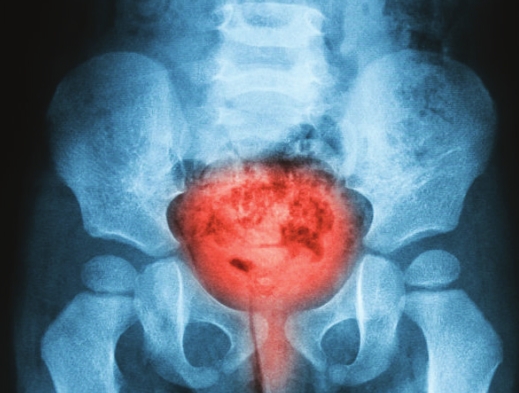UROLOGIC ISSUES FACING WOMEN OVER 50

Treatment available for various conditions
Women seem to be bombarded with many new health issues as they approach and transition through menopause. Urologic issues are no exception. After talking with many women about the following topics, we’ve learned that many simply feel this to be “normal” or their “lot in life.” A lot of women aren’t really sure what a urologist does. This article serves as an educational tool for patients so they may feel more comfortable initiating a conversation, albeit sometimes sensitive, with their health-care provider.Urinary Tract Infection (UTI)While women can have a UTI at any age, they occur more often in postmenopausal women. The decreased amounts of estrogen create changes in the urinary tract and vaginal health increasing your risk of UTI. Other risks include kidney stones, diabetes or not fully emptying the bladder.
A typical workup for recurrent UTIs (two or more infections within six months) is aimed at uncovering and correcting such risk factors.

For many postmenopausal women, an integral part of that treatment is replacement of vaginal estrogen using a cream or newer treatments like vaginal laser therapies such as MonaLisa Touch. This exciting treatment is new to the Ark-La-Tex.IncontinenceUrine leakage is a problem for millions of American women. There are a few different types of incontinence. It becomes important to distinguish the two more common types because this will direct the physician which steps should be taken first.Stress Incontinence – usually described as leaking urine when you cough, laugh, sneeze, lift something heavy or exercise.Urge Urinary Incontinence – usually described as leaking urine before you can make it to the bathroom.
There are many lifestyle changes thatcan be made to help with incontinence:
• Reducing food and drink that irritate your bladder, especially caffeinated products.
• Going to the bathroom at timed breaks, such as every two to three hours.
• Learning to properly perform Kegel exercises.
• Quitting smoking. Chronic coughing unnecessarily stresses the pelvic floor.

• Losing weight. Similarly decreased undue stress on the pelvic floor.There are many surgical options available for the treatment of stress urinary incontinence. To treat overactive bladder or urge urinary incontinence, there are many medications available. If there is no improvement with medications, you may consider more advanced therapies like Botox injections into the bladder or a “bladder pacemaker” (nerve stimulation).Kidney StonesKidney stones tend to develop in midlife. They form in the kidney itself and typically begin to cause the tell-tale symptoms once they “move”or block the flow of urine from that kidney.
This is often very painful. The size, location and degree of blockage will determine whether the stone will likely pass on its own or require surgical removal. As people from the South, the best thing we can do to prevent stones is stay very well hydrated! We should also be mindful of our salt (sodium) intake, as too much sodium can increase the risk of formation of new stones. Lastly, adding citrate-rich fruits and vegetables can decrease the risk of stones.
Hematuria(Blood in the urine) Many women are rightly referred for evaluation of hematuria (blood in the urine). Most people are not even aware of the presence of blood, as it is subtle enough not to cause an actual change in urine color. A few tests are needed to determine if the cause is serious or not. This usually includes imaging of the kidney (either with ultrasound or CT) and a scope of the bladder. The outcome is most often negative, but occasionally will lead to a major diagnosis like bladder or kidney cancer.
Prolapse
Vaginal prolapse is the descent of pelvic organs (bladder, rectum, uterus or vaginal cuff) into the vagina. Aging and vaginal deliveries are the biggest risk factors for developing vaginal prolapse. Some women have mild prolapse that is not causing bother or symptoms while others may have complaints such as pain or difficulty emptying the bowels or bladder. The degree of prolapse and bother to the patient will help direct treatment. Treatment options include observation, pessary (plastic device designed to keep pelvic organs in place) or surgery.
Vaginal Dryness / Painful Intercourse 
Vaginal dryness can occur as women age from the lack of systemic estrogen. This dryness can lead to pain with intercourse, recurrent urinary tract infections, or vaginal itching and irritation. Each of these greatly affect a person’s quality of life. These symptoms can be treated with vaginal estrogen cream; however, for patients with a history of breast or other gynecologic cancers, estrogen replacement is contraindicated. New therapies such as the vaginal laser (MonaLisa Touch) have been developed to treat vaginal dryness (atrophy) with relatively few contraindications.
Urologic Cancers
Urologic cancers such as kidney cancer and bladder cancer can occur in both men and women. Smoking is the biggest environmental risk factor for such cancers in both sexes. Signs such as blood in the urine may be the only indicator of more serious disease and, therefore, should be further evaluated with imaging studies and a scope of the bladder.
– Alison Spann, MD – Leah Chiles, MD
Dr. Leah Chiles received her medical degree from LSU School of Medicine in Shreveport and completed her urologic residency at Baylor-Scott & White. Chiles joined Regional Urology in 2016 and practices general urology with focus on male and female urinary incontinence, voiding dysfunction, neurogenic bladder, vaginal prolapse, urethral strictures and diverticula, and urinary fistulae. Regional Urology 683-0411.
Dr. Spann completed her undergraduate education at Louisiana Tech University, obtaining a Bachelor of Science in biological sciences. She attained her medical doctorate at LSU School of Medicine in Shreveport, where she pursued her surgical internship and urology residency training. Dr. Spann is trained in all aspects of general adult and pediatric urology. She has developed a special interest in urologic stone disease and endourology, female urology and pediatric urology. Regional Urology 683-0411.
